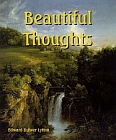
Life of David

Description
Life of David
The History of the Man
After God's Own Heart
by
Anonymous
Some reverend panegyrists on our late king, have, a little unfortunately, been fond of comparing him with a monarch in no respect resembling him; except in the length of his reign, thirty and three years: which a lucky text informed them to be the duration of David's sovereignty over the Hebrew nation.
Print size, 12 point font
**************
EXCERPT
Had our good old king died a year sooner, or had we been indulged with him a year longer, the opportunity of applying this text would then have been lost; and in either case we might not have heard of the parallel.
A reverence for the memory of a worthy Prince, has occasioned the world's being troubled with a new history of king David, (which, otherwise might not have appeared) merely to shew how the memory of the British monarch is affected by the comparison.
"Why even of yourselves judge ye not what is right?" is the language of Jesus Christ. "Prove all things; hold fast that which is good;" is the language of the apostle Paul. The liberty thus granted is unlimited; but it is more than mere grant of liberty, these are positive injunctions: let no one then be so timid as to resign an inclination to satisfy just doubts: in Britain, thanks to the obstinate heresy of our brave forefathers, no audacious Romish priest dare prescribe limits to the exercise of our reasoning faculties; and Protestant ones surely will not: nay, they cannot, consistently with those principles which justify their dissent from the Romish communion.
An honest desire to obtain truth, will sanctify the most rigid scrutiny into every thing. An apostle has told us, that we are not to believe even an angel from Heaven, who should preach any other gospel than that of Christ; and, no authority can be so sacred, as to set aside the most valuable distinction of humanity, with which our Creator has furnished us; or to give the lie to our most self-evident conceptions of right and wrong.
If that liberty, of which Britons boast the possession, means any thing, it must primarily include freedom of thought; without which there can be no freedom of action. Thus it must mean an uncontrolled power to examine the validity of every proposition offered to our assent; without which power, and the due exercise of it, our assent cannot be the assent of rational beings. If the reformed religion means any thing, it must mean a religion founded by the authority, not of councils and synods, but of conviction, the result of private judgment.
True Protestants do not puzzle themselves about the decisions of Trent, Constance, or Dort; they protest against all authoritative dictates; disciples of the meek, the lowly, the humane Jesus, they seek of themselves to judge of right or wrong. Who is most the Protestant, the friend to human kind, and to truth? Those who appeal to the human understanding, and submit to the public judgment whether things are really so or not; or those who say, they are so, they shall be so, you shall acknowledge them to be so, or else--?
Softcover, 5½ x 8½ , 100 pages















